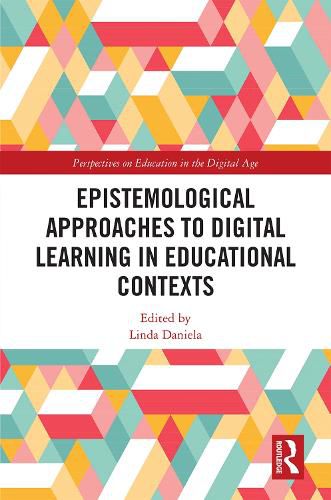Readings Newsletter
Become a Readings Member to make your shopping experience even easier.
Sign in or sign up for free!
You’re not far away from qualifying for FREE standard shipping within Australia
You’ve qualified for FREE standard shipping within Australia
The cart is loading…






Epistemological Approaches to Digital Learning in Educational Contexts is dedicated to topical issues in school education and pedagogical science related to the learning process in a technology and media enriched environment. It opens up discussions on the development of the educational science sector and strategies for smart pedagogy to promote synergy between technology and pedagogy to support students in the learning process.
The book presents different perspectives on how to evaluate the enhancement of technology use, which can help improve Computational Thinking skills. It also helps in identifying the changes in pupils’ algorithmic thinking through programming in Scratch 2.0. The book further explores the way digitally-mediated materiality may support teaching practice and proposes tools that are available for the educational curator in a digital learning environment.
This book will be of great interest to academics, researchers, and post-graduate students in the fields of higher education, vocational education, and digital learning.
$9.00 standard shipping within Australia
FREE standard shipping within Australia for orders over $100.00
Express & International shipping calculated at checkout
Epistemological Approaches to Digital Learning in Educational Contexts is dedicated to topical issues in school education and pedagogical science related to the learning process in a technology and media enriched environment. It opens up discussions on the development of the educational science sector and strategies for smart pedagogy to promote synergy between technology and pedagogy to support students in the learning process.
The book presents different perspectives on how to evaluate the enhancement of technology use, which can help improve Computational Thinking skills. It also helps in identifying the changes in pupils’ algorithmic thinking through programming in Scratch 2.0. The book further explores the way digitally-mediated materiality may support teaching practice and proposes tools that are available for the educational curator in a digital learning environment.
This book will be of great interest to academics, researchers, and post-graduate students in the fields of higher education, vocational education, and digital learning.